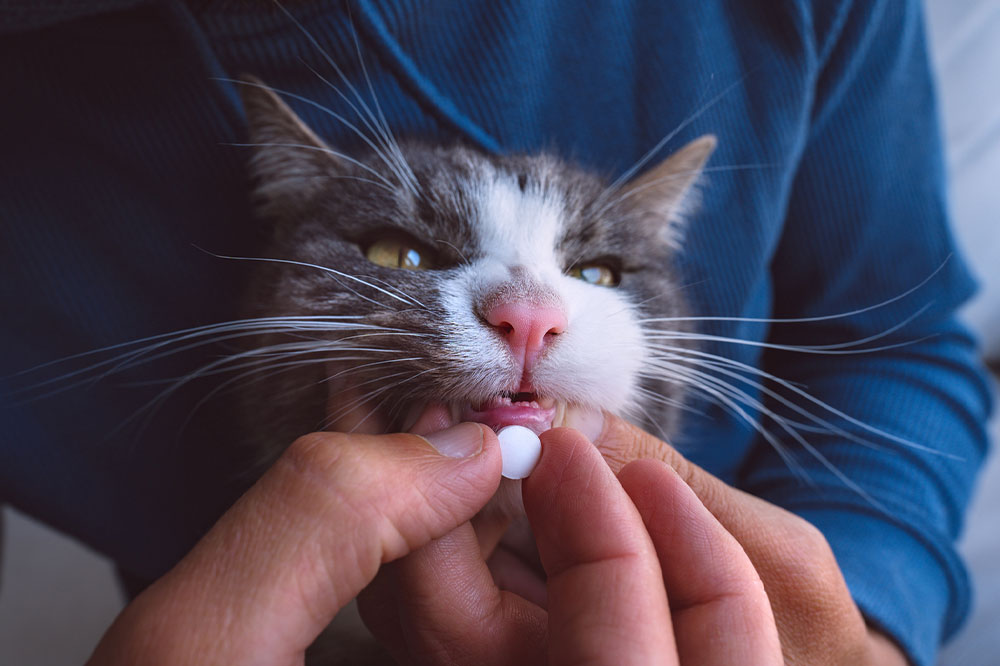Cats are natural but small predators. They believe showing signs of sickness makes them easy prey for other larger predators. That is why they tend to hide their discomfort when feeling unwell. If a cat you care for displays signs of ill health, that can be a major cause of worry, warranting immediate attention from a vet. Watch out for the following changes in behavior or signs that your cat is sick:
- Vomiting or diarrhea: While vomiting occasionally is not a concern, keep an eye out for the timing and frequency of vomiting and diarrhea, as this may require a trip to the veterinarian.
- Sudden changes in appetite, drinking, or eating habits: Changes in appetite and eating habits could result from or lead to hyperthyroidism, fatty liver disease, or hepatic lipidosis in cats.
- Noticeable weight changes: If your cat has been experiencing unexplained weight gain or loss, it may be time to visit the veterinarian.
- Breathing problems: If your cat is experiencing wheezing, rapid or raspy breathing, or shortness of breath, rush them to the veterinarian for an emergency check-up.
- Mood changes: If your friendly and confident cat begins to show signs of aggression or fear, you may want to have them checked. Confused or disoriented cats may need emergency medical intervention.
- Over-grooming: Over-grooming could indicate that your cat is experiencing a skin infection or pain.
- Lethargy: If your cat never seems to have the motivation to play, is sleeping more than usual, or has low energy levels, it could be a warning sign for their health.
- Bad breath: Severe bad breath (halitosis), excessive drooling, and bleeding from the mouth could be signs of an oral infection. This can spread through the body and affect the heart and lungs.
Some other signs and symptoms to watch out for include constricted or dilated pupils, neglecting grooming, improper use of their litter box, limping, showing signs of injury such as wounds or swelling, changes in vocalization, changes in urination patterns, discharge from eyes, ears, or nose, ear debris, hair loss, skin irritation, or hiding. If your cat begins to display any of these signs, it is time to visit a veterinarian and get them checked.

















